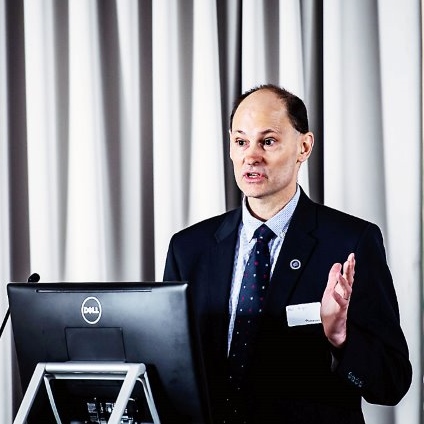click to dowload our latest edition
CLICK HERE TO SUBSCRIBE TO OUR NEWSLETTER


Published
6 years agoon
By
adminSTEVEN GRUZD
South Africa would also be out of step with its BRICS partners, as Russia, India and China all pragmatically expand their economic, technological and security links with the Jewish State.
These were the major findings of a report by Tutwa Consulting Group entitled “Economic implications of the potential South African embassy downgrade in Tel Aviv”, discussed at a seminar hosted at Investec in Sandton by the South African Jewish Board of Deputies last Wednesday.
Panel chairperson Professor Mzukisi Qobo, said South Africa was missing an opportunity to benefit from greater trade with Israel “due to an emphasis on ideology”. He urged new paths for dialogue and win-win partnerships, emphasising how Israeli technology could ameliorate the Western Cape’s water crisis.
Tutwa’s study considered dynamic first round and second round economic effects of a downgrade on trade, investment, technology and tourism. The psychological impact on the Jewish community in South Africa could in turn have profound economic impacts.
In terms of total trade, bilateral trade is relatively small. “Since 2000 Israel’s share of South Africa’s total exports has never gone higher than 2,21 per cent,” said Tutwa.
Certain value-added export lines could be affected by severed ties, and absolute levels of trade matter in terms of revenue, employment and livelihoods, disproportionately in hi-tech (both software and hardware), telecoms, agroprocessing and water management, according to Tutwa’s managing director, Peter Draper.
The countries share similarly small bilateral foreign direct investment footprints. In 2015, at R2,93 billion, Israeli FDI stock in South Africa was not insignificant, but was just 0,15 per cent of total inward FDI. Yet Israeli investment in South Africa has increased six-fold from 2001 to 2015.
Tutwa wrote: “While Israel’s share of South Africa’s FDI stock is minor, the fact that it is increasing amidst a generalised decline, should not be dismissed.” In the same period, South Africa invested R407 million in Israel, out of a total stock abroad of R2,4 trillion.
Again, in tourism, the relative numbers are insignificant, but over 25 000 tourists travel both ways annually, and Israeli tourists spend R500 million each year here. A rupture of relations could thus threaten thousands of jobs.
If visas were reintroduced, this could adversely affect travel and investment. In the worst case of tit-for-tat embassy closures, visas would have to be procured in a third country.
The possibility that Washington would revoke South Africa’s trade privileges under the African Growth and Opportunities Act in retaliation for a downgrade, was considered unlikely, and would certainly provoke an incensed response from Pretoria.
Tutwa concluded: “Given the potential economic benefits of closer relations with Israel, it is our considered opinion that the downgrade would not serve South Africa’s national interests.”
Marc Lubner, chairman of the SA-Israel Chamber of Commerce, said this sabre-rattling would have no huge effect on Israel, but South Africa needed to fund its growing budget deficit, “and cannot afford to cut off its nose to spite its face”.
He said South Africa could have obtained Israel’s desalination technology, but chose instead to deal with Germany and Iran (who use Israeli technology anyway), raising the costs. He called South Africa “increasingly myopic”, in contrast with its BRICS’ partners growing economic ties with Israel, and said trade would continue “under the radar” with a downgrade.
The proposal to alter the status of the embassy surfaced at the ANC Policy Conference on July 4, to “send a strong message” to Israel for perceived intransigence in negotiations with the Palestinians, settlement expansion considered illegal and alleged human rights abuses.
Delegates debated a downgrade, closing the embassy entirely, conducting a risk analysis before either step, while some felt such analysis was unnecessary. With no decision, the can was kicked down the road to December’s conference.
One speaker said that a win for Cyril Ramaphosa’s faction in December would likely mean slower implementation (if the decision is taken at all).
This looming decision, of course, is about ideology, not economics. If it was a moral argument, then why are similar downgrades not on the cards for Sudan or Myanmar, asked Tutwa?
The anti-Israel lobby hopes it would spur a full boycott of Israel. It certainly would make Jews worldwide and at home lose further confidence in the South African state.
Several speakers confirmed that a downgrade would torpedo any peace-brokering role for South Africa in the Israeli-Palestinian conflict.
This event was held under the Chatham House Rule, meaning that speakers are only identified with their express permission.
